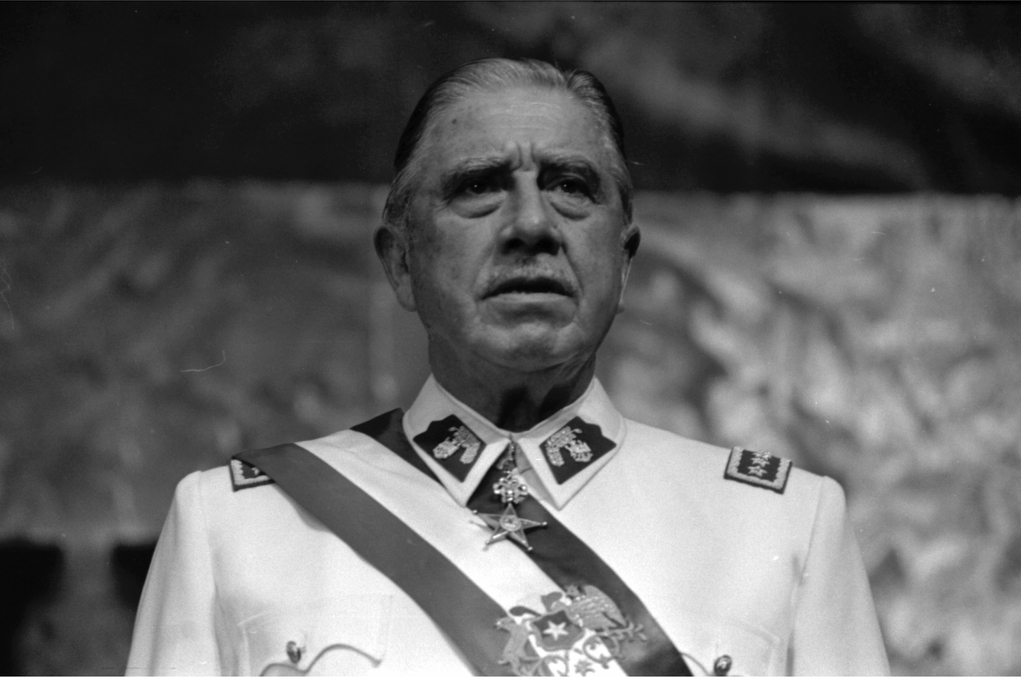When Oppressors Repent, Who Deserves Forgiveness?
Just before Christmas, prisoners serving long terms for human rights abuses during Augusto Pinochet’s dictatorship in Chile received a mass and asked for forgiveness from the families of their victims. Some families of the victims protested the mass, and many human rights advocates dismissed these moves by the prisoners as empty, and not genuine steps towards earning forgiveness.
Forgiveness is often seen as a virtue, a good-making feature of a life well lived. To forgive is to let go of the blame we feel towards those who wrong us. Letting go of negative feelings can seem like an obvious good, a move towards a more positive way of living. When we hurt each other and let one another down, we make amends, apologize, and aim to get past states of blame and hurt. When someone who harms us apologizes, forgiving them is how the relationship can move forward.
We hold up paradigms like Martin Luther King, Jr. and Mahatma Gandhi in part because of how much they exemplified this ideal of forgiving those who wrong them instead of carrying the blame they were entitled to along with them.
On the other hand, there are wrongs that feel so egregious that to forgive the people who commit them seems like doing something wrong ourselves. Forgiveness can feel like we are saying that we are okay with what has happened, and when there are some wrongs that are so bad that we should never be okay with them, forgiveness can seem untenable. Standing up to and continuing to blame an oppressor, or a grievous wrongdoer, can be a way to stand up for yourself. It is a way to express that you don’t deserve such treatment, a way to protest that kind of behavior. Continuing to blame and withholding forgiveness can be the appropriate thing to do.
In The Sunflower: On the Possibilities and Limits of Forgiveness, Holocaust survivor Simon Wiesenthal recounts visiting the deathbed of a Nazi who asked him to forgive him for killing hundreds of Jews. He surveys the opinions of a variety of people on what the appropriate response would be to the Nazi’s request, relating responses from including theologians, fellow survivors of the Holocaust and other genocides, and former Nazis. Through the perspectives of these different people, we can see the complexity of issues surrounding the question of when it is appropriate to forgive: who has the standing to forgive someone for doing the wrong thing? Are there cases where we ought to forgive, and would be wrong to fail to do so? On the other hand, are there scenarios where the wrong was so grievous that to forgive the wrongdoer would be the error?
In cases of deathbed forgiveness, granting the dying man’s wish makes forgiveness seem most like a gift, something that Wiesenthal can provide for him as a relief from his guilt. Forgiveness, in such an interpretation, would be something we do for the wrongdoer.
Alternatively, we could think of forgiveness in cases of such horrible wrongdoing as something Wiesenthal could do for himself. To carry the weight of the tragedy of so much murder and harm would affect his life greatly. The act of forgiving the dying man could be a gracious and relieving act.
In the case of the Chilean prisoners, we have more questions. Some relatives of the prisoners’ victims have expressed frustration at being asked to forgive the people who tortured and killed their loved ones. The leaders of Chile’s former violent regime have not revealed where some of the victims have been buried, and have failed to behave in ways to show their remorse and earn the forgiveness of the families of the victims.
These events recall the public requests for forgiveness towards the end of Pinochet’s life. In 1999 the Dalai Lama asked for forgiveness on behalf of Pinochet, the leader of the military coup in Chile in 1973 that led to the violence that these prisoners perpetrated. During his reign, 3,197 people were killed for political reasons and according to official reports, “more than 30,000 were tortured, many more illegally imprisoned, thousands forced into exile.” In his old age, Pinochet was portrayed by the media as decrepit, with emphasis on both physical and existential suffering in terms of chronic back pain and his pitiable situation as a former dictator for life. These appeals to his situation later in life as grounds for forgiveness play to the potential forgivers’ feelings of empathy.
These emphases draw out a tension in how we can think about when it is appropriate, obligatory, or impermissible, to forgive someone who has committed a wrong.
Should we consider the decision to forgive Pinochet a matter of removing the harm of blame, when he is experiencing these other sufferings? Or should forgiveness be a response to the “earning” of the removal of blame, because the wrongdoer shows sufficient remorse, or has made amends, and the like?
These questions point to the purpose of forgiveness. Is it more like a gift to the wrongdoer, a release from feelings of guilt, perhaps? Or, is it a release for the person forgiving, a move towards living a more positive life not weighed down by the negativity of blame and resentment?
We forgive those who have wronged us. Forgiveness is a decision to stop blaming these wrongdoers, and is most appropriate when those who have wronged us no longer deserve the blame.
When the wrongdoer has shown no remorse, they haven’t earned forgiveness, and so the extent to which giving forgiveness as a gift is the relevant question. It can seem abhorrent to give gifts to one’s oppressors, after all. On the other hand, we still have the ideals of the forgiving activists as well. Working out these tensions is central to our moral and social lives.





